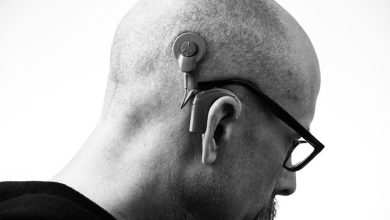The Link Between Hearing Loss and Loneliness

In our digitally interconnected society, the detrimental effects of social isolation and loneliness have gained significant attention. Recent research has uncovered a compelling link between hearing loss and these psychological states. Individuals with untreated hearing loss often struggle to engage in conversations, leading to embarrassment and frustration. This avoidance of social situations can result in profound feelings of loneliness and isolation, potentially contributing to mental health issues. This article delves into the connection between hearing loss and loneliness, highlighting the benefits of seeking treatment and the role of hearing aids in fostering improved communication and meaningful relationships.
The Impact of Hearing Loss on Social Interaction
In light of the knowledge on the link between hearing loss and social isolation/loneliness, it is crucial to understand the profound impact that hearing loss can have on social interaction. Communication challenges are one of the primary effects of hearing loss, as individuals may struggle to follow conversations and understand speech. This can lead to frustration and embarrassment, causing them to avoid social situations altogether. The emotional effects of hearing loss are also significant, with feelings of loneliness and isolation being common. Studies have shown that untreated hearing loss can even lead to the development of depression. Therefore, addressing hearing loss is essential for maintaining social connections and overall well-being. By seeking treatment, such as using hearing aids, individuals can improve their communication abilities, boost their confidence in social settings, and enhance their quality of life.
Loneliness as a Consequence of Untreated Hearing Loss
A significant proportion of individuals with untreated hearing loss experience profound feelings of loneliness and social isolation. This is due to several factors that contribute to the emotional toll of living with untreated hearing loss.
- Difficulty in communication: Untreated hearing loss makes it challenging to follow conversations, leading to a breakdown in social interactions.
- Avoidance of social situations: Embarrassment or frustration caused by not being able to hear properly can cause individuals to withdraw from social gatherings.
- Decreased social connections: Untreated hearing loss can result in a smaller social network and limited participation in social activities.
- Increased risk of depression: The feelings of loneliness and isolation associated with untreated hearing loss can contribute to the development of depression.
These findings highlight the importance of early intervention and seeking treatment for hearing loss to prevent the negative consequences of loneliness and social isolation. By addressing hearing loss, individuals can improve their communication abilities, regain confidence in social situations, and maintain meaningful relationships, ultimately enhancing their overall well-being.
Loneliness: a Silent Epidemic Among Individuals With Hearing Loss
During this era of increasing awareness and understanding of mental health, the silent epidemic of loneliness continues to plague individuals with hearing loss. The challenges faced by those with hearing loss, such as difficulty following conversations and avoiding social situations due to embarrassment or frustration, often lead to feelings of loneliness and isolation. Research has shown that untreated hearing loss is associated with higher social isolation and a smaller social network. To combat this issue, loneliness prevention and social engagement strategies are crucial. Encouraging individuals with hearing loss to seek treatment, such as using hearing aids, can improve communication and increase confidence in social situations. Additionally, promoting social activities and support groups specifically designed for those with hearing loss can provide a sense of belonging and connection. By addressing both the physical and emotional aspects of hearing loss, we can help alleviate the silent epidemic of loneliness among individuals with hearing loss.
Uncovering the Psychological Effects of Hearing Loss
Numerous studies have revealed a significant impact of hearing loss on individuals' mental well-being, including increased rates of depression, anxiety, and cognitive decline. The psychological toll of hearing loss can be quite substantial, leading to a range of emotional and psychological effects. These effects include:
- Increased feelings of frustration and irritability: Difficulty hearing and understanding conversations can lead to frustration and irritability, causing individuals to withdraw from social situations.
- Decreased self-esteem and confidence: Untreated hearing loss can result in embarrassment and self-consciousness, leading to a decline in self-esteem and confidence in social interactions.
- Social isolation and loneliness: The emotional impact of untreated hearing loss often leads to social withdrawal and feelings of loneliness, as individuals may struggle to communicate effectively with others.
- Cognitive decline and mental health issues: Studies have shown a correlation between untreated hearing loss and cognitive decline, as well as an increased risk of developing mental health issues such as depression and anxiety.
Understanding the emotional impact of untreated hearing loss is crucial for providing appropriate support and intervention to individuals experiencing these challenges.
The Role of Hearing Aids in Reducing Social Isolation
Following the identification of hearing loss, hearing aids play a crucial role in reducing social isolation and improving overall well-being. These devices provide individuals with the ability to hear and engage in conversations, thus enhancing their communication skills and confidence in social situations. Moreover, hearing aids help maintain meaningful relationships and stay connected to others, preventing feelings of loneliness and isolation.
To emphasize the importance of early intervention and the role of support groups in the process, the following table provides a comparison between the outcomes of individuals who receive timely treatment and support, and those who do not:
| Early Intervention and Support | No Intervention and Support |
|---|---|
| Improved communication skills | Difficulty following conversations |
| Increased confidence | Avoidance of social situations |
| Enhanced social engagement | Feelings of loneliness and isolation |
| Better mental well-being | Potential development of depression |
It is evident that early intervention and the presence of support groups significantly contribute to reducing social isolation and improving the overall well-being of individuals with hearing loss. Therefore, it is crucial for healthcare professionals to emphasize the importance of seeking treatment and joining support groups to enhance the positive impact of hearing aids on social connections and quality of life.
Addressing Hearing Loss: A Solution to Loneliness
Addressing hearing loss is an effective solution for reducing loneliness and improving social connections. Here are four key reasons why addressing hearing loss can help combat loneliness:
- Importance of early intervention: Early detection and treatment of hearing loss can prevent the negative consequences of social isolation and loneliness. By addressing hearing loss early on, individuals can maintain their social connections and prevent the development of mental health issues.
- Role of support groups: Joining support groups specifically designed for individuals with hearing loss can provide a sense of belonging and understanding. These groups offer a safe space to share experiences, learn coping strategies, and build meaningful relationships with others facing similar challenges.
- Improved communication: Treating hearing loss with hearing aids or other assistive devices can significantly enhance communication abilities. Clearer and amplified sounds enable individuals to actively participate in conversations, reducing feelings of isolation and allowing for more meaningful social interactions.
- Enhanced quality of life: By addressing hearing loss, individuals can regain confidence in social situations, reduce stress, and improve their overall mood. This helps maintain meaningful relationships and fosters a sense of connection with others, ultimately leading to a more fulfilling and enjoyable life.


